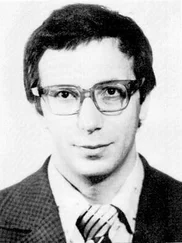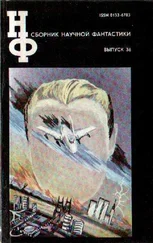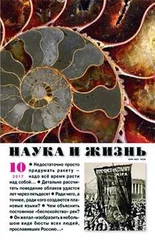They went to Cyprus to get married. Israel has no provisions for a civil ceremony. In her increasingly sleepless nights, Mor sometimes imagined a council of elderly rabbis solemnly deliberating whether a death may convert to Judaism.
After a brief honeymoon they returned home as a married couple. Now, said David, they should have a reception for his family.
“At home?” Mor asked faintly.
“We will rent a banquet hall,” David reassured her.
A catered dinner, of course, he said casually, say, a hundred and fifty people. No, not including your friends, we can have a separate reception for them; money’s not a problem. No, love, not in Jaffa, the seaside is very pretty, but it has to be in Jerusalem. They all dream of visiting the Holy City, you may count on it.
Will they show up riding pale horses, she wanted to ask, or in clouds of lighting and thunder? But she knew she was being ridiculous. They would stand in line for passport control like everybody else.
Candles burned on the tables. People with champagne flutes and plates of canapés laughed, chatted, embraced, and wandered out onto the jasmine-scented patio.
“Wanda, Zoe, Jerome, Ervin,” David introduced them one by one even when they arrived as couples. “Mark, Yolanda, Ahmed.”
Only the first names. Did it mean that they all had the same family name?
“Maggie, Ruth, Xiaowei.”
How many? God, how many of them?
“Guido, Carl, Donna.”
Good-looking people, all of them: youngish, healthy, smiling, well dressed.
“Liliana, Eric, George.”
And properly diverse too: whites, Asians, blacks, and browns in roughly equal proportions. Mark was African American, and elegant Miranda looked like an Ethiopian model. Ahmed would blend into any Middle Eastern crowd. Susan, arriving on Roger’s arm, belied her nondescript name by sloe eyes and café-au-lait skin.
“Kalia, Roman, Patricia.”
“Nice to meet you!
“Have a drink!”
“What a lovely place!”
They all spoke English, but some with exotic accents: silky French, heavy Eastern European, or guttural Middle Eastern.
“Reginald, Oscar, Victoria.”
Strangely old-fashioned names, but nothing old-fashioned about their bearers. Women in Fendi and Prada dresses, men in Armani suits. Glitter of jewelry and expensive dental work.
“Mikhail, Gloria, Stefan.”
Greeting them at the entrance, Mor tried to guess their identities but was defeated by their impersonal gloss. She found an answer when she started to mingle. One wall of the dining space was composed of mirrors. And in the mirror she could see her new family as they really were.
Liliana was the Plague. Seen face-to-face, she was a slightly plump woman with crinkly brown hair and laughter lines. She was reflected in the mirror wearing a blood-red cloak that dragged on the floor, leaving a dark stain behind. Her pleasant features were disfigured by open sores, lips split and oozing pus. Holding a wineglass in a festering hand, her reflection smiled at Mor with missing teeth.
The garrulous Stefan was reflected with ashy, hopeless eyes; his ingratiating smile, a rictus of pain; his neat tie, a twisted rope. Suicide.
Elegantly slim Ruth was a gaunt, ravenous creature. In the mirror, her diaphanous dress became a transparent shroud that clung to her protruding ribs and swollen stomach. Famine.
George, the only man in the room wearing a T-shirt with an Escher print under a sports jacket instead of a suit, incuriously glanced at his own image whose throat was slashed by a gaping wound. The Escher geometry was transformed into a chaos of bloody blobs. Murder.
Victoria’s shiny blonde hair was a couple of gray tufts on the mottled skull. Old Age.
Mark was reflected as a walking mass of burns, bleeding tissue, and splintered bones. Accident, she decided.
Zoe—the others seem to defer to her, and seeing her in the mirror with the black leather harness molding her voluptuous body, her thrusting breasts like missiles, a bracelet of rusty iron splinters around her full arm, and her face covered by a helmet-like mask, Mor understood why. War was undoubtedly high on the deaths’ social ladder.
There were, however, some visitors whose reflections left her puzzled. Maggie was one of them. When David introduced her, Mor saw a nice British woman, slightly older than the rest. When she walked by the mirror Mor glimpsed a strange scarecrow figure with stick-like arms and legs, her face painted with garish whorls.
Mor circulated among the guests, making polite remarks, feeling strangely detached (even curiosity was evaporating), when there was a commotion at the entrance. She saw David speaking to somebody whose only visible part was a pair of fluttering hands. She quickly went there as David stepped aside, muttering something about “bad taste.” Mor found herself facing the late guest.
He was a short, pedantic man with sandy hair and blue eyes magnified by rimless glasses.
“Let me introduce… Daniel,” David said with a tiny pause before the name. “Daniel is retired. He does not socialize much.”
“I thought it was my duty to come,” said the short man.
Mor offered him a drink and steered him toward the mirror. He went willingly, planted his feet wide, and stared at his image. It was exactly the same as the man. And then Mor knew who her last guest was.
“I’m sorry,” said Daniel. “I know how you must feel. But I had to come.”
“Do you know me?” she asked and her voice sounded like the squeak of a mouse.
“I know all of you,” he said.
She looked around. Should she appeal to Stefan, Death-Suicide, who had helped her mother escape? Or to Plague, Famine, Accident, Cancer, even War? Any other death to keep her company but this.
“You see, I’m retired now,” continued Daniel, “and looking at the whole business from a historical perspective, I can’t blame myself. I only followed orders.”
“Can’t you come up with a better line?” she yelled. The sheer banality of it transmuted her dread into anger.
“But it’s true. Think about it. You call the shots. You, humans. We only do what we are told. A human hand pulls the trigger or signs an order, and we mop up the resulting mess.”
“How convenient! However, I see the others shy away from you. Could it be even they don’t approve of your methods?”
“Sheer prejudice,” said Daniel. “Envy too. There is a great deal of jockeying for power going on among us. You’ll find out. You are one of us now, after all.”
“Fuck you! Do you think I’m doing this to be your sister-in-law? I love David. And anyway, what are you doing here, in this city, attending a Jewish wedding?”
Daniel only smiled, unperturbed:
“I have attended a lot of Jewish weddings,” he said. “And of course you love David. I have seen love sacrifices too. Eventually they tend to benefit somebody, though not always the party intended.”
They moved into a bigger apartment in Tel Aviv which David paid for out of pocket, despite the insane housing bubble going on in the city. Mor kept her mother’s house in Jerusalem. He suggested she stop teaching. There was no need, he said. She refused. She needed those hours on campus when she could pretend that life went on as usual—or better than usual. She was a married woman now. She had a diamond ring, a loving husband, and money in the bank.
She did not want to know what David was doing when she was away. Every time she came home, she was afraid he would tell her. But he never did. They watched Netflix and ate dinner. He went through the motions of eating conscientiously, even though it was a sheer charade. He did not need ordinary food, of course, and she soon realized that he was incapable of tasting it. Despite that, his cooking was excellent.
Читать дальше






